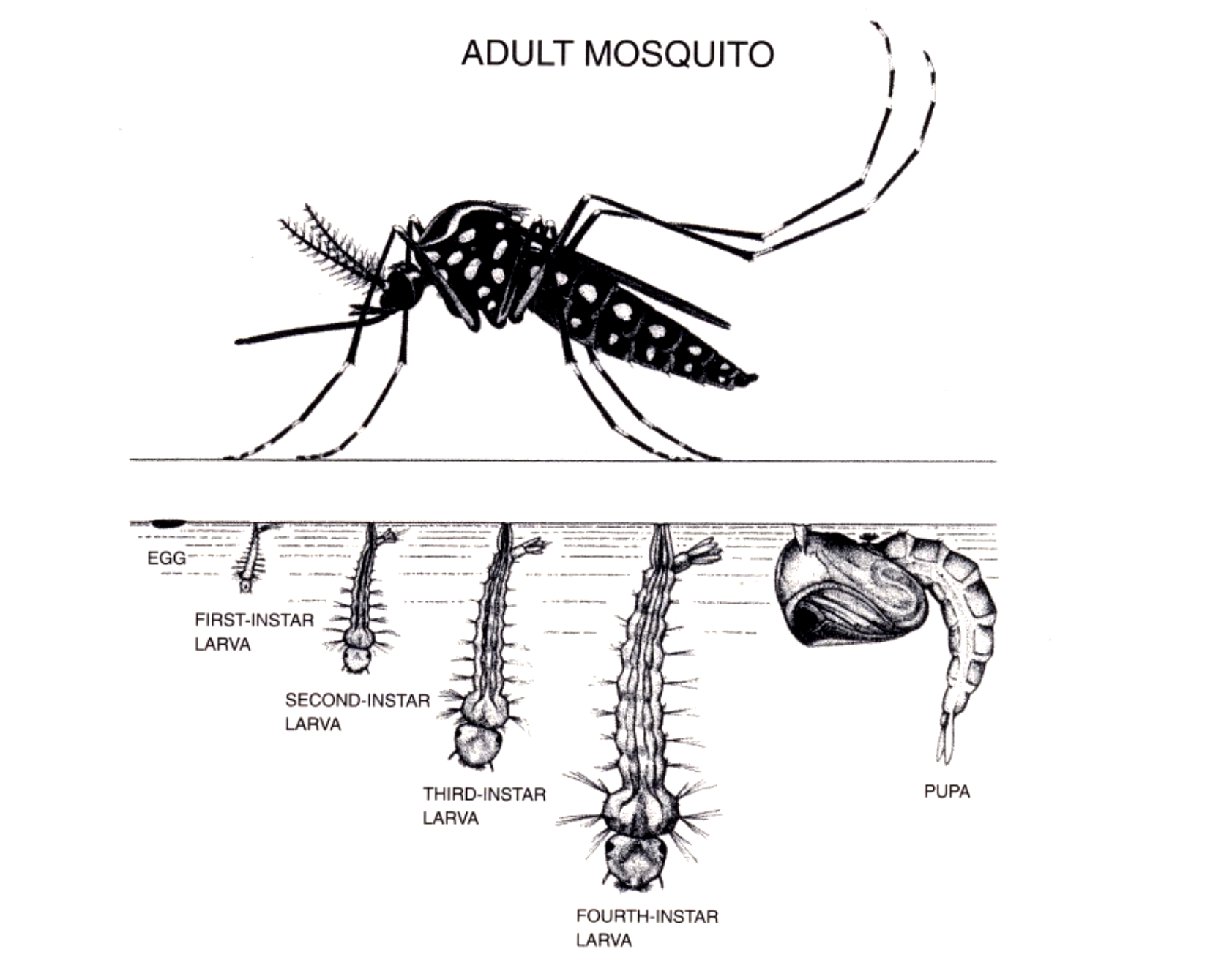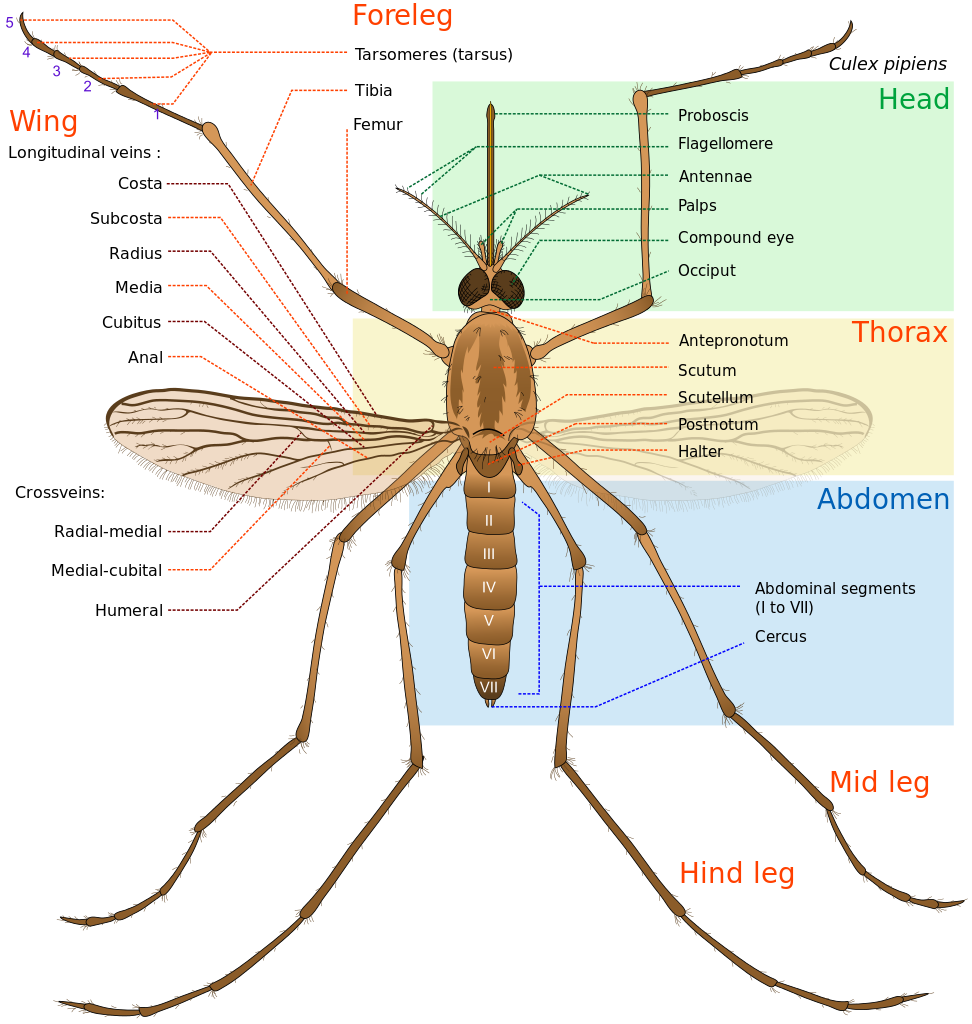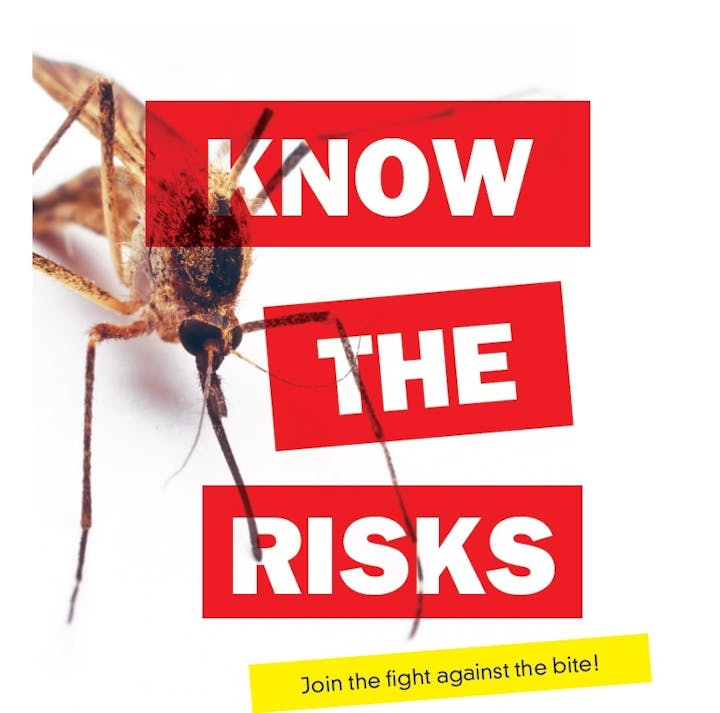Education
Mosquito is Spanish for “little fly.” There are more than 3,500 species of mosquito, and mosquitoes are found in every region of the world except Antarctica. During the peak breeding seasons, they outnumber every other animal on Earth except ants and termites! Approximately 50 mosquitoes species can be found in Utah.
Mosquito Facts
- All mosquitoes must have water to complete their life cycle
- In warm weather mosquitoes only require 7 days to go through their complete life cycle
- Mosquitoes do not develop in grass or shrubbery, although adults frequently rest in these areas during daylight hours
- Only the female mosquito bites to obtain a blood meal. The male mosquito feeds only on plant juices.
- Female mosquitoes require a blood meal before she can lay eggs.
- The female mosquito may live as long as three weeks during the summer or several months over the winter in order to lay her eggs the following spring.
Life Cycle of a Mosquito
Mosquitoes have four distinctive life stages, with the first three stages being spent in the water. An adult female lays about 100-200 eggs in clusters called rafts, which float on the surface of the water, or singly on the waters edge, depending on the species of mosquito. Mosquito larvae hatch from eggs, often within 2-3 days, but some eggs can remain viable over winter months, or periods of drying lasting up to several years to hatch when conditions are more favorable.
Mosquito larvae are found in a wide variety of standing water sources including fish ponds, abandoned swimming pools, stagnant and polluted waters, log ponds, snow pools, brackish water, horse troughs, artificial containers, and even discarded car tires. The larvae come to the surface of the water to breathe through a tube called a siphon and feed on small organic particles and microorganisms in the water. Over the course of several days to a few weeks, mosquito larvae progress through four stages (called instars), becoming larger in each successive stage, before developing into pupae.
Like the larvae, mosquito pupae live in water and breathe air at the surface of the water. During the pupal stage, the mosquito does not eat. It breaths through two tubes on its back. The adult mosquito grows inside the pupa and in several days, when it is fully developed, it splits the pupal skin and emerges to complete the life cycle of a mosquito. The newly emerged adult mosquito rests on the surface of the water allowing itself to dry and all its body parts to harden before flying away to feed.


What can you do?
Small efforts around your home can significantly reduce mosquitoes! Start by looking around your yard and eliminating any standing water. Even a mere tablespoon of water can produce many mosquitoes! The graphic below may help you identify some possible places water collects and mosquitoes can breed.
- Clean clogged rain gutters
- Clean bird baths weekly
- Remove old tires, any way they lay (unless covered) they collect water
- Check for sags in tarps and drain
- Dump extra water in pots
- Dump water in pails
- Check sprinklers for leaks or overwatering that can leave excessively wet areas of your yard
- Regularly clean swimming pools
- Clean ornamental ponds, install a fountain so water is moving, or request mosquito fish or briquets to control mosquitoes
- Drain garbage cans and keep covered
- Drain water collected on dented or concave lids
- Keep kids toys put away, drain any water
- Drain wheelbarrows and store upright, upside down or inside
- Check that water drains properly in the bottom of any window wells, debris on top of rocks can prevent proper drainage
- Sweep puddles on uneven cement or decks so they dry faster. Eliminate future puddles by filling low spots


